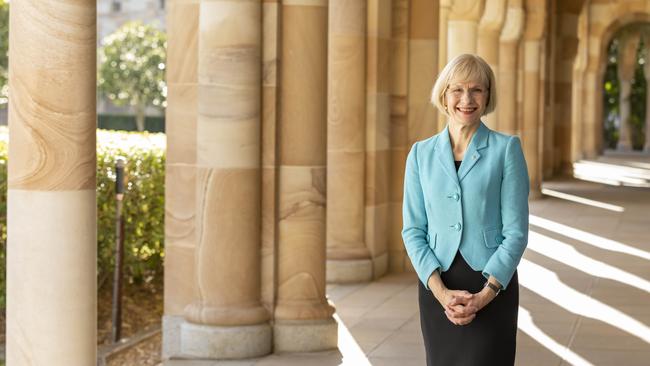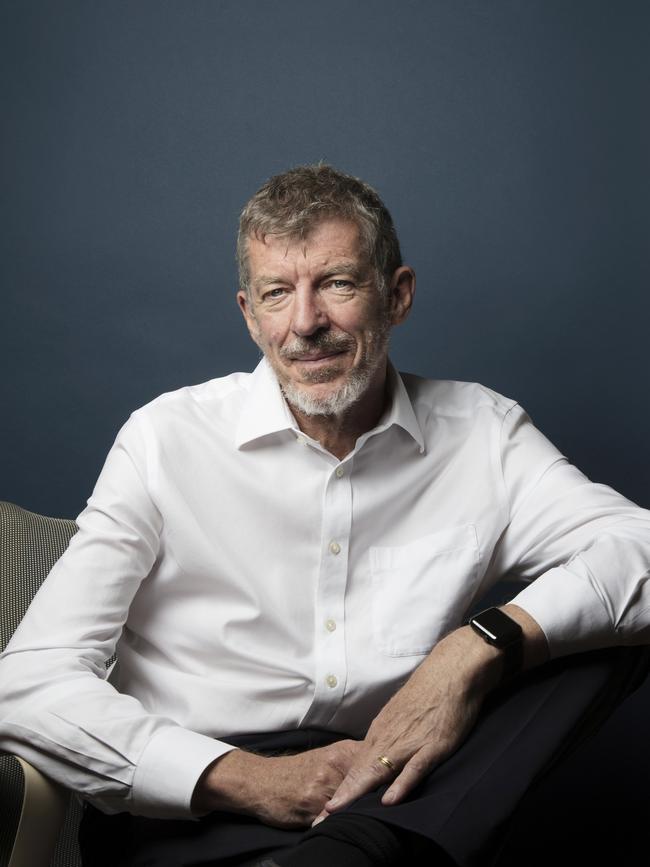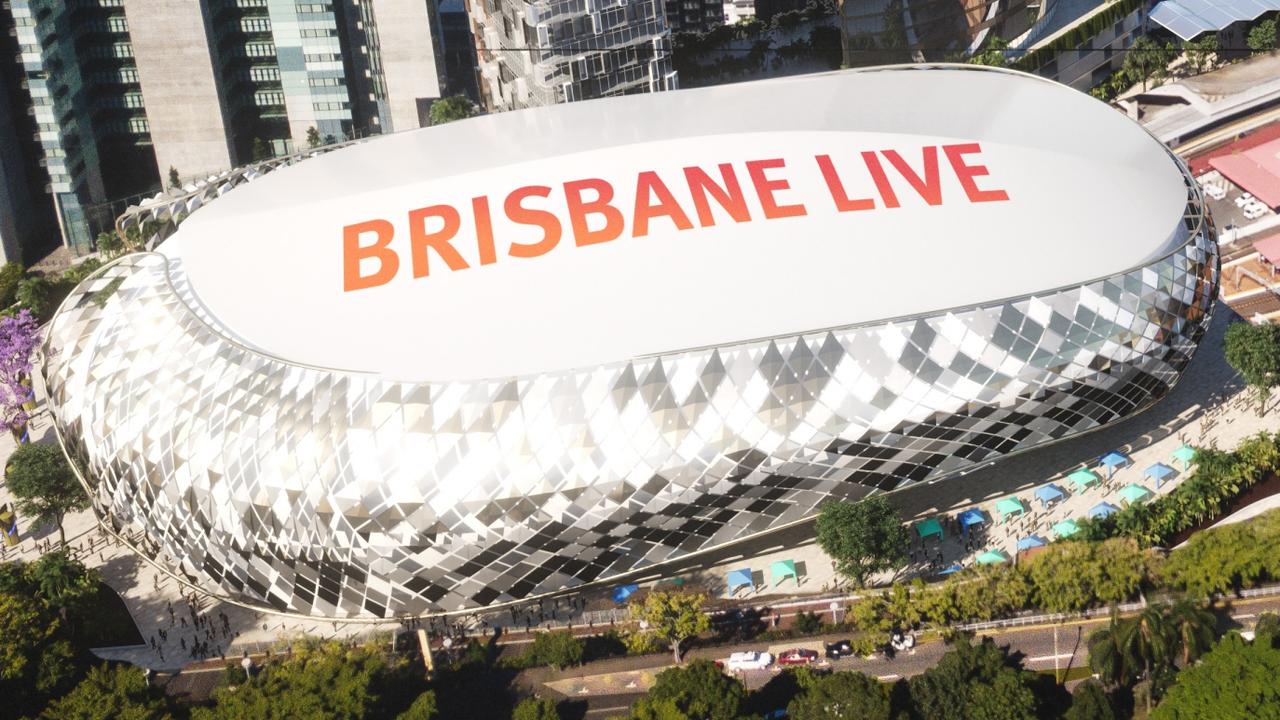Future Brisbane: University of Queensland VC outlines 2032 legacy
We know Brisbane 2032 can redefine our city and transform the state economy, but there will be unexpected benefits the world will discover here beyond a sporting event, writes Prof Deborah Terry AO.
Future QLD
Don't miss out on the headlines from Future QLD. Followed categories will be added to My News.
There’s a lot of public policy attention focused not just on running the 2032 Olympic and Paralympic Games, but on imagining Brisbane post-Olympics.
The Games delivery partners recently launched a legacy strategy, Elevate 2042, which will guide how the Games will drive lasting benefits for Queensland beyond the event.
That strategy is clever. It helps us all focus on making the Olympics and Paralympics work for Brisbane, not the other way around.
Future Brisbane: City strives to become nation’s innovation capital
Future Brisbane 2023: Government and business leaders to discuss Games legacy
Future Brisbane: First Nations cultural centre push for 2032
We know hosting the Games can redefine a city and transform its economy.
And because 2032 will be the first Games contractually obliged to be climate positive, I expect much of the world’s attention will focus not just on the sport, but on the technology and environment that helps Brisbane achieve that goal.
The President of the Brisbane 2032 Organising Committee, Andrew Liveris, said Elevate 2042 was a plan to build a healthier and inclusive city.
He encouraged innovators, entrepreneurs, and start-ups to use 2032 to accelerate research and investment not just in sport, but in resources, agriculture, tourism, creative industries, and biomedicine.
We already have a State Government fully invested in the transition to net zero, as well as universities and a burgeoning battery industry, for example, working hard to make it happen.
But there’s one high tech industry, in particular, that has been quietly booming in Brisbane over the past few decades.

Biomedical and environmental sciences are transforming the world by tackling global challenges, from climate change to pandemics.
Much of that research and innovation is being done through collaborations between government, industry, and universities.
Together, they have been building a biomedical and environmental science precinct – the Boggo Road Innovation Precinct – in Woolloongabba and Dutton Park, just across the river from UQ’s St Lucia campus.
Many of the tools we’ll use to create that sustainable, healthy, carbon-neutral 2032 Games will be developed next door to some of the main Games venues.
That’s going to make Brisbane look very attractive for companies, investors, and researchers looking for opportunities to expand in a rapidly growing Asia-Pacific region.
Before we look into the future, let’s step into the past to see how Brisbane’s biomedical industry started.
In 1988, Brisbane hosted another mega-event, the World Expo, which changed the way the rest of Australia saw our city.
Expo transformed South Brisbane, an area of closing warehouses and factories based on old 19th and 20th century industries and technology.
David Malouf, a UQ graduate and aspiring poet, grew up in South Brisbane. In his 1970s novel Johnno, he described Brisbane as ‘the most ordinary place in the world’, a place where ‘poetry could never occur’.
Expo ’88 envisioned a new Brisbane. Expo’s theme was, quaintly, ‘Leisure in the age of technology’.
That prosperous future in which we’d all have more free time didn’t quite pan out, but the theme did make Brisbane attractive. Instead of leaving, ambitious and talented people were arriving.
A young medical scientist, Ian Frazer, moved to Brisbane in the 1980s and set up a lab at UQ to examine the link between the human papilloma virus and cervical cancer.

In 1990, he invited a virologist, Jian Zhou, to move to Brisbane and together they invented the cervical cancer vaccine Gardasil.
Brisbane started to think of itself as a place where great science can occur.
But that invention also highlighted what Brisbane didn’t have; the capacity to further develop and manufacture the vaccine. That had to be done offshore.
Losing that opportunity no doubt played a part in then-Premier Peter Beattie’s decision in 1998 to launch the Smart State initiative, earmarking $100 million for biomedical-specific investments.
And a few years later, American philanthropist Chuck Feeney saw Brisbane’s potential and gifted many more millions to help establish UQ’s Institute for Molecular Bioscience, the Queensland Brain Institute, the Australian Institute of Bioengineering and Nanotechnology, the Centre for Clinical Research, and the Translational Research Institute.
These institutes are now world leaders in the search for treatments for many diseases such as dementia, heart disease, and motor neurone disease.
Today, we’re witnessing the construction of a mature end-to-end biomedical industry. Global pharmaceutical company, Sanofi, last year announced Brisbane as its Indo-Pacific base for vaccine and drug development.
And a few weeks ago, UQ announced plans for a new campus at Dutton Park, part of that growing biomedical and environmental science precinct.
Evolutionary biologist Richard Dawkins once described science as ‘the poetry of reality’.
A biomedical science industry is now part of Brisbane’s reality.
When the world discovers Brisbane in 2032, we will be able to showcase not just Queensland’s unique, sustainable environment, but the new industries that will protect that environment and power a new economy.
I think all of us, too, will better appreciate that we live in the most extraordinary place in the world.
Professor Deborah Terry AO is Vice-Chancellor and President of the University of Queensland


